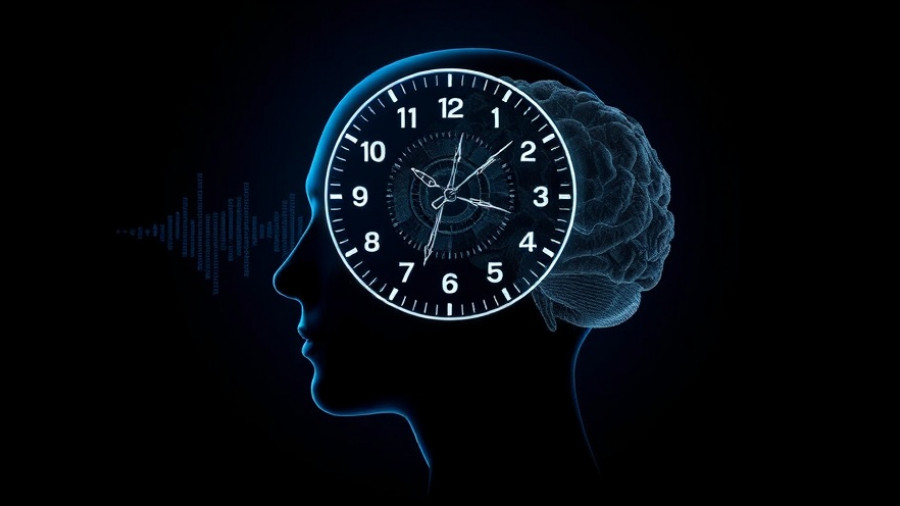
Finding a Rhythm: How Your Body Clock Can Impact Brain Health
Recent research from Washington University School of Medicine has shed light on an intriguing potential link between our body's natural rhythms and the development of Alzheimer’s disease. By manipulating the body's internal clock, scientists found a way to raise levels of a vital molecule, NAD+, which may protect against neurodegeneration.
At the heart of this discovery is the circadian protein REV-ERBα, known to regulate various rhythms associated with metabolism and inflammation. Researchers found that by inhibiting this protein in mouse models, they could significantly lower levels of tau—a toxic protein incriminated in Alzheimer’s—while also improving brain health. This approach highlights a powerful connection: timing may play a critical role in maintaining cognitive health.
The Importance of NAD+ in Brain Health
NAD+ (nicotinamide adenine dinucleotide) is crucial not just for energy production but also for DNA repair and neuronal functions. As we age, NAD+ levels naturally decline, which has been linked to increased risks of cognitive decline and conditions like Alzheimer's. By focusing on the circadian rhythm, researchers are exploring a new frontier where simple lifestyle changes could augment NAD+ levels and combat neurodegeneration.
The Role of Circadian Rhythms in Neurodegeneration
The effects of disrupted circadian rhythms on mental health have been well documented. Sleep irregularities can lead to cognitive decline, especially in older adults. Research indicates that a staggering 45% of Alzheimer’s patients experience significant sleep disruptions—a pointer that could signal early stages of neurodegeneration.
This study adds to the growing body of evidence indicating that circadian misalignment could exacerbate Alzheimer’s disease pathology. By strategically aligning our daily routines with our body's biological clock—prioritizing consistent sleep patterns and exposure to natural light—there stands a chance to enhance brain health.
Exploring Therapeutic Directions
While more research is needed, there are tangible steps individuals can take today to align with their circadian rhythms. Simple practices such as maintaining regular sleep-wake cycles, engaging in regular physical activity, and reducing exposure to screens before bed can all foster better sleep quality, thereby promoting overall health.
In addition, consider discussing with healthcare professionals the potential benefits of circulating products like melatonin. This hormone aligns with body rhythms and may offer further protection against cognitive decline.
Looking Forward: The Future of Alzheimer's Research
As research continues to link circadian rhythm disruptions with neurodegenerative diseases, it becomes ever more crucial. The understanding we gain today could pave the way for novel preventive strategies and therapeutic modalities targeting brain health in Alzheimer's and beyond. Future studies will aim to uncover how specifically these circadian rhythms can be leveraged for protective measures.
In conclusion, while Alzheimer's disease remains a complex challenge, it highlights the importance of our bodily systems' natural rhythms. Making holistic lifestyle changes can be a promising path forward in our collective battle against cognitive decline.
 Add Row
Add Row  Add
Add 




Write A Comment